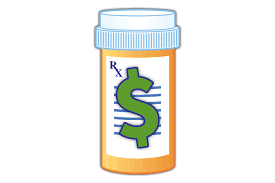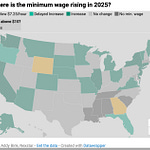“Research and development is only about 17 percent of total spending in most large drug companies,” he [Gerard Anderson, professor of health policy and management at John Hopkins University], says. “Once a drug has been approved by the FDA, there are minimal additional research and development costs so drug companies cannot justify price increases by claiming research and development costs.” Qtd. in a 2019 CNBC article.
I’d like to continue the conversation from a recent post that focused on why millions of us in the United States carry medical debt. It makes sense, then, to drill down on the cost of prescription drugs, because that cost can be the largest part of any medical bill, particularly hospital stays, and thus lead to medical debt charged on high interest credit cards or never ending predatory loans.
We know prescription drug prices in the United States are the highest in the world among comparable, wealthy nations. In fact, money spent on prescription drugs by both insurance companies and out-of-pocket by consumers is close to double that of other, similar countries. But why?
Some of our elected officials, those who care whether their constituents live or die, have been working for decades to call attention to this disparity in prescription drug prices among the United States and other wealthy nations. They have introduced bill after bill to cap the rising cost of drugs, but have failed to gain the votes to pass them. Yet the cost of prescription drugs continues to rise and pharmaceutical companies continue to haul in record profits.
Recent surveys show that the majority of the American people think the cost of their prescription drugs is too high (89% of those surveyed in a recent Kaiser Family Foundation (KFF) poll), making buying the drugs and taking the dosage directed by their doctor out of reach. This same KFF survey also reveals that people regularly taking at least four different prescriptions per month and those in lower income brackets find it more difficult to afford their medicine. It’s not a leap in logic to conclude that the more prescription drugs one must pay for and the lower one’s income, the more difficult it is to make ends meet.
Through use of the reconciliation process, which only requires a majority of lawmakers in the Senate to pass a bill (51 versus 60), Congress was able to pass the Inflation Reduction Act in August of this year. This law moves to reduce inflation through slowly lowering the cost of prescription drugs, increasing investment in clean energy and paying down the deficit through modest tax increases on those making more than $400,000 a year. The final law was a compromise among Senate democrats, two of whom rejected President Biden’s initial, Build Back Better proposal in favor of its pared down cousin, now dubbed the Inflation Reduction Act in a brilliant marketing name change. The final vote in the Senate was 51-50, with Vice President Harris making the tie-breaking vote. Not that I’m casting aspersions on a particular political party, but not one Senate or House Republican voted for the law that will eventually lower prescription drug prices under Medicare and Medicaid .
Although the Inflation Reduction Act is a huge step forward, it is slow to phase in the Medicare negotiation process which will lower the price for those drugs that make the negotiation list. According to this analysis by the KFF, Medicare negotiated drug prices for those drugs covered under Part D do not go into effect until January 2026, and negotiated prices for those drugs covered under Medicare Part B don’t take effect until January 2028. Apparently, those required to take Insulin and who have Medicare have a capped out-of-pocket cost of $35 for each monthly dose as of 2023, but good luck figuring out the nuances in the possible cost among the various types of Insulin and whether it is delivered by pump or other method.
I’ve discussed the idea in several previous posts that in effect, an elected official’s votes appear to correlate with who donates large sums of money to their campaign. The bottom line is that “someone” accepts millions of dollars in campaign donations from the pharmaceutical industry, fossil fuel industry, chemical industry and every other public and private interest group, and it is not you and I, it is the people we elect to represent us. They write the laws and shape our public dialogue and policies, and their positions and voting record oftentimes seem to line up with the money they receive, and in turn, use to fund their campaigns for re-election.
In a participatory democracy, we have a lot more options than to throw up our hands and claim that all politicians are corrupt, so whether we vote or whom we vote for doesn’t make a difference. I hear this statement a lot, and first it makes me angry and then it just makes me sad. This is lazy thinking, because every bit of information about our elected officials, including how each of them has voted on every issue is easily accessible, public information. They are not all corrupt and it does make a difference which people and parties hold the powerful jobs of elected officials.
————————————————————————————————————
I’d love to hear what you think about the outrageous cost of prescription drugs in our country. Have you ever not been able to fill the prescriptions you need, or have to cut down on the dosage to be able to afford other necessities? What should the collective “we” do about this?
Let ‘er rip in the Comment Section below.
As always, I appreciate your interest and thoughtful ideas that make our Crime and Punishment community a welcoming space to visit and chat. There’s no time like the present to become a free or paid subscriber—thanks in advance for your support!














Share this post